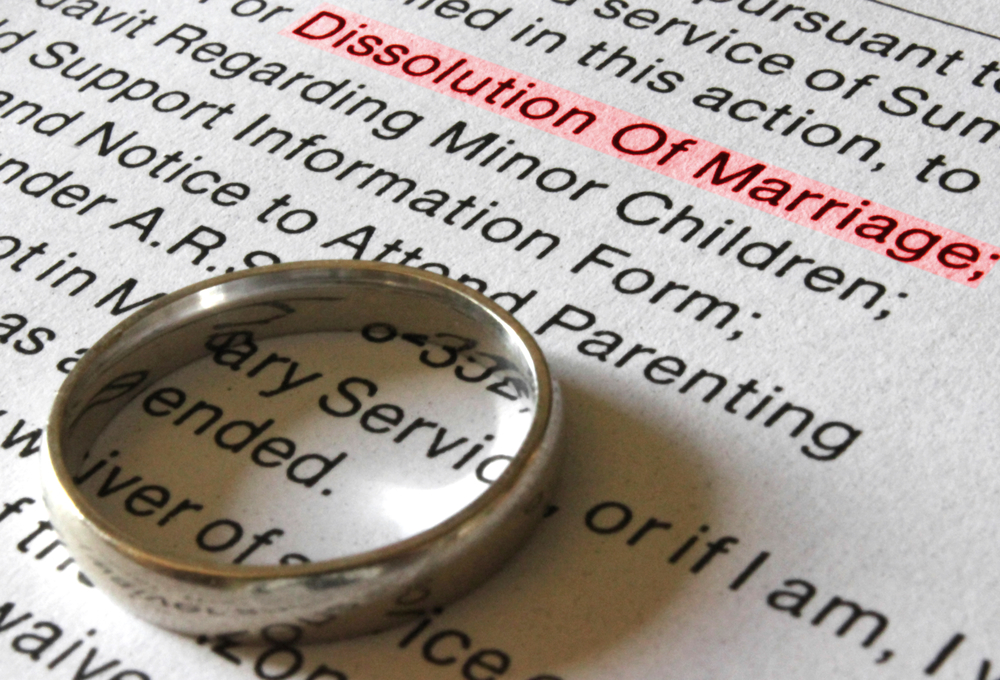 In most cases, there are two ways in which a marriage can be legally ended—divorce or dissolution of marriage. What are the differences between these two options, and how do you know which is the best option for you? Here is an overview that should provide you with the answers to those questions. If you’re considering or currently pursuing either a divorce or dissolution of marriage, contact our experienced divorce attorneys at The Harr Law Firm today.
In most cases, there are two ways in which a marriage can be legally ended—divorce or dissolution of marriage. What are the differences between these two options, and how do you know which is the best option for you? Here is an overview that should provide you with the answers to those questions. If you’re considering or currently pursuing either a divorce or dissolution of marriage, contact our experienced divorce attorneys at The Harr Law Firm today.
The Primary Difference
The main difference between a divorce and a dissolution of marriage is fault. To obtain a divorce, one party must claim their spouse is a fault in some way. Fault grounds typically include one or more of the following:
If there is no fault to be claimed in your marriage, then you would actually be pursuing a dissolution of marriage; however, this term is often replaced with “no-fault divorce,” so many people are not aware that these are actually different legal processes for ending a marriage.
The Divorce Process
Because fault can be such a weighty issue in a marriage, the divorce process is typically much lengthier, as well as much more stressful for the parties involved. Divorce proceedings begin when one spouse files a complaint, and the papers are served to the other spouse. After this, courts require you to wait at least six weeks before the divorce can actually be granted.
Once divorce proceedings begin, there are typically several different hearings before a judge. These hearings are used to discuss matters like division of assets, child custody, child support, alimony, and more. During this time, you can also ask the court to grant temporary orders pertaining to custody and support payments. You may also request an order for all marital assets to be left intact throughout the proceedings, to protect your share of the assets, as well as file for a restraining order if you feel it is necessary during the divorce.
While the divorce is in progress, both parties have the legal right to obtain records pertaining to all property owned by the other spouse. This is known as the discovery phase, and often involves the help of professionals, like our forensic accountants, to ensure all assets are accounted for. You can also have this information brought into court by filing a subpoena.
The primary thing to note about a divorce process is that the final agreement with your ex is determined in a court of law. If you both reach an agreement during the case, that agreement becomes the court’s order. If an agreement cannot be reached, the trial judge will issue the final order based on the testimonies and evidence given over the course of the hearings.
Dissolution of Marriage Process
A dissolution of marriage is typically much shorter and simpler than a divorce, and can eliminate a lot of the expenses associated with a divorce case. In these cases, the two spouses work together to formulate an agreement without involving a judge. However, it is still strongly recommended that you work with legal representation, to ensure that you are receiving what you are fairly due, and nothing is overlooked.
Because negotiations over your agreement take place outside of a court of law, you do not have the option to request a subpoena during this process. Rather, both parties must voluntarily trade information. However, you can still work with professionals to have property evaluated, and provide other services that will help both parties ensure a fair and mutually beneficial agreement.
Only once both parties have reached an agreement on all issues do they file a dissolution petition with the court. This includes settling all matters pertaining to child custody, parental rights, child support, parental visitation, alimony, division of assets, payment of debts, payment of attorney fees, and more.
After filing your dissolution petition, you must have a hearing in court within 30 to 90 days. At the hearing, both spouses must appear and testify that they are satisfied with the agreement, that they have disclosed all liabilities and assets, that they signed the agreement of their own free will, and that they want the marriage to be dissolved. The court must then approve the agreement.
While the processes may differ slightly, the end results of both a divorce and a dissolution of marriage are the same—the marriage is terminated. Whether you feel you need to pursue a divorce case, or can be satisfied by a dissolution of marriage, we strongly advise you to protect your rights and assets by working with one of our divorce attorneys. Contact us today to tell us more about your case.